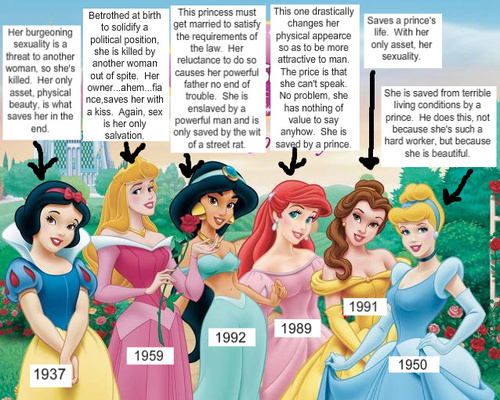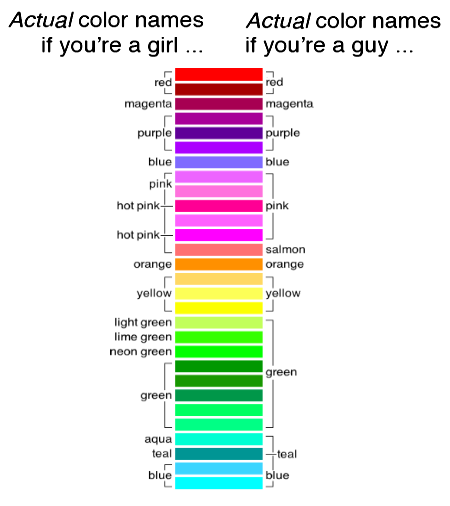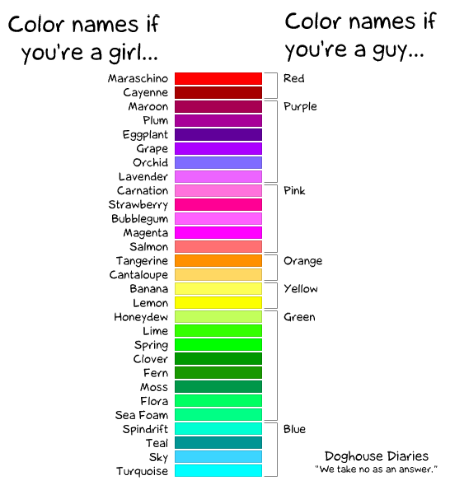I copped some flak for posting a similar look at Disney’s unhelpful life lessons… but here are some more.


Via BoingBoing.
Here are the old ones:

I copped some flak for posting a similar look at Disney’s unhelpful life lessons… but here are some more.


Via BoingBoing.
Here are the old ones:

Alphabet charts are so passe. If you want your kidlet to learn the alphabet, and learn it fast, let Wolverine and friends teach them…

I <3 XKCD. It’s my regular dose of geeky humour rendered in high definition stick figurey goodness. Millions of other people like it too. In fact, XKCD is arguably the world’s most influential blog. The forum 4Chan might cause more havoc, but XKCD readers tend to use their powers for good. Remember Tetris Hell? That was an XKCD comic. Within hours a reader had made it playable.
In this comic ninjas visit an open source software guru:

Shortly afterwards… ninjas confronted the guy at a conference.

After this comic:

This guy created a ball room in his house using this calculator that another reader created.
Here’s an article tracking XKCD’s influence.
The XKCD man, Randall Munroe, conducted a big survey on colour identification and gender. He found that the difference between men and women on colour recognition has been greatly exaggerated.

Contrary to this DogHouse Diaries Comic:

He also gives a nice guide to common colours and their hex codes based on the survey results.

He created a colour map too, which is helpful for colourblind people like me.

Some unboring posts in the pipeline people. I promise.
Personal Pronouns
To recap some English grammar – a pronoun is a noun that stands in the place of a noun. Like “it” or “this.” A personal pronoun is a noun that stands in the place of a person.
The first person singular pronoun in English is “I,” in Greek it’s “εγω.” Fitting really.
Because we’re dealing with nouns we’re looking at the same four major cases (in fact, there are no vocatives in the first person, because you don’t talk to yourself in Greek land. That would be crazy.
So the first person pronouns look like this:
Singular
Plural
εμου, εμοι and εμε are used to emphasise the pronoun.
The second person pronouns like this:
Singular
Plural
The accented forms of the pronouns are used for emphasis. Accents are too hard to type consistently, so you’ll just have to imagine them all over the place here, and elsewhere.
A tip for differentiating the second person plural nominative and the first person plural nominative is to remember that “u” is the first letter of the second person, and the last letter of the English equivalent (you) while “e” is the first letter of the first person, and the last letter of the English equivalent (we). There has to be an easier way to express that…
And the third person like this (it has masculine, neuter and feminine versions, eg. he, she, and it):
Masculine
Singular
Plural
Feminine
Singular
Plural
Neuter
Singular
Plural
There are no vocatives in the third person, and the declension, across the genders, is exactly the same as αγαθος (the adjective), except for the neuter nominative and accusative, which follow the declension of the definite article instead.
Characteristics of Pronouns
Special Uses of αυτος
αυτος has two special uses.
We’ve covered present and future tense already, where we learned that to futurify a verb you add an s after the stem (eg λυω=present, λυσω = future) Greek likes indicating changes with new letters. It’s much the same in past tense, though there are three past tense varieties to be mindful of. These are:
These “secondary” (ie past) tenses receive a past time morpheme (called the augment) which usually appears as an ε, but there are rules about what happens when the ε meets other vowels. It can’t coexist.
They also get secondary suffixes (bits on the end of the word) that can vary slightly but are mostly:
The imperfect is formed by:
So:
The imperfect has four main uses:
These uses are determined by context.
The Imperfect form of ειμι (I am)
Aorists have a nice little “aspect morpheme” that makes spotting them in the wild a little easier. They get a σα that sticks on the stem. So to build an aorist verb you:
So:
You’ll notice that in most cases the σα just takes the place of the connecting vowel from the Imperfect. Except in the first person and third person singular. The first person singular is called the “aorist active principal part” and because it breaks the rules, the third person has to as well. Otherwise it would be the same. So it gets an ε.
The aorist plays three roles:
The aorist is more common in the New Testament than the imperfect, so when an imperfect crops up we should ask “why is this imperfect and not aoristic?”
Remember that σ doesn’t play nice with other verbs (from when we were making future tense verbs). This crops up again when you bang a σα onto a stem that ends with a letter that σ doesn’t like.
To recap:
Some examples to watch out for:
The ε is a bit like σ. It doesn’t play well with other letters. These rules obviously come about because of the pronunciation difficulties that would be presented if they didn’t… so εα is harder to say than η. When the augment comes across a stem that starts with a short vowel (ε, ο and sometimes α, ι, and υ) it lengthens to the corresponding long vowel (η, ω). For example, the imperfect form of ακουσω is ηκουν. If the verb already starts with a long vowel, or a dipthong, nothing changes. It has a zero morpheme augment. The pronunciation doesn’t change, but the suffix does. ειρηνευω (I make peace) becomes ειρηνευον (I was making peace).
Some verbs are special and take a double augment. These verbs start with a vowel and consonant, which are duplicated before the augment is added. So αγω (I lead) becomes αγαγ, and then the augment changes it to ηγαγ, and with the suffix ηγαγον (I was leading)
This is one of those subsets of Greek that is designed to infuriate first years. Second Aorists look almost identical to the imperfect. They don’t take a σα, they just drop a cowel from within the stem. The best way to come to grips with this unusual change is to remember that English does it too. eg. I stink, I stank, I stunk.
ελειπον (I was leaving) becomes ελιπον.
Some other verbs are just confusing. λεγω means “I speak,” but ειπον means I spoke. This happened when two verbs that meant the same thing had other forms that fell out of use. An English example is “I go” and “I went” – one is the past tense of the other, but they have very different origins.
Here are some Second Aorist examples:
The stem of γινωσκω is γνο which is lengthened to γνω and in the second aorist becomes εγνων (I knew).
ειδον (I saw) is the second aorist of οραω (I see).
These are just aorist versions of previously covered verbs:
Are you bored with this yet? Don’t worry. There are probably only five more of these posts to go, and then I’ll be on to Hebrew… Thanks for humouring me. Feel free to chime in if you have any suggested memory hooks, or if I’m in error. I know some of you read Greek…
Adjectives
Greek adjectives agree with their noun in gender, number and case. This means a feminine ending, plural, nominative adjective has to match up to a feminine ending, plural, nominative noun. They have endings just like the article.
Greek adjectives work in three different ways:
1. Attributively – describes the noun eg “The good man.” In this use the adjective either shares an article with the noun and comes between the article and the noun, or has its very own article and comes emphatically after the noun eg: “The Man, The good one” which you can simplify to “the good man.” In either use the article comes right before the adjective.
2. Predicatively – The adjective can be used to assert something about the noun – “The man is good” – it functions as a complement, or equals sign (like the verb “to be”). The predicate adjective comes either before the article or after the noun. So it literally reads “good the man” or “the man good,” there will not be an article before good, in both examples you supply an “is” to make the sentence read better. Most of the time in the New Testament, ειμι (or one of its conjugations) will be in the sentence too, as an extra clue.
3. Substantively – Sometimes the adjective will supply its own in built noun (based on the word ending) so “ο αγαθος” without a nominative noun will translate to “the good man” and “η αγαθη” will translate to “the good woman.”
Adjective endings don’t always completely match up – they don’t need to in order to agree in number, gender and case – because adjectives can be used with nouns from other declensions.
There’s a tricky adjectival use where the noun is not definite. In this case you have to use context to figure out if the adjective is being used attributively or predicatively.
The first four prepositions (απο, εις, εν, εκ) only work with one noun case each.
There are five more one case prepositions:
There are six further prepositions that work with two noun cases each.
And two more that have three cases:
The distinction between uses of επι has been lost.
Prepositions before vowels and rough breathing…
Ancient Greeks obviously had troubles ending one word with a vowel and starting the next word with a vowel. So all of these prepositions except περι and προ drop their final vowel when preceding a word with a vowel. The vowel is replaced with a smooth breathing mark.
Sometimes the words get smashed together into compound verbs. If a vowel has dropped out this happens first. If a verb looks like it has a preposition mashed into it, it probably does.
Some translations are obvious eg. εκβαλλω is “out” plus “I throw” so it’s I throw out. Some have become idioms. αναγινωσκω means “I read” not “I know up”.
When a verb is in the past tense it gets an augment, a letter chucked on the front of the stem, when this happens to a compound verb, like εκβαλλω, the augment (normally an ε) goes in front of the stem. So εκβαλλω becomes εξεβαλλω. When a compound verb is used in the New Testament it is often supported by the preposition also being used with the noun.
Compound Verbs Vocab and Memory Hooks
The First Declension (which textbooks tend to deal with second) has a nice rule that helps with the tables. Or a couple of rules.
Feminine Nouns of the First Declension
It splits nouns into categories based on the final letter of the root (which is the noun’s stem). If the root of a word ends with ε, ι, or ρ then the endings go:
If it ends with a sibilant (ζ, σ, ψ, or ξ) then the α becomes an η in the genitive and dative cases – so:
If the root ends with anything else then it gets an η and the same pattern, so:
Masculine Nouns
The masculine nouns are different.
They either end with an α or an η and follow the feminine pattern (except in the genitive). But they add an ς to the end of the last So:
Plurals
All the first Declension nouns have the same plural endings.
Prepositions in Greek always come before the noun they describe. Prepositions in Greek have a semantic range, and depending on the case of the noun they work with have different meanings. Some prepositions only have one case though… These are:
When these prepositions are used with a noun of the same case they work together to form a prepositional phrase. So crowd in the dative case (“τῳ οχλῳ”) would normally be translated as “for the crowd”, when you chuck the preposition “εν” in front of “τῳ οχλῳ” it becomes “in the crowd”
As reported the other day, to celebrate Pacman’s 30th birthday Google created a playable Pacman version of its logo. It’s now permanently available. The playable logo is estimated to have consumed 4.8 million man hours globally.

RescueTime is a program that monitors online usage. They extrapolated their data to reach that figure.
Here’s the baseline:
Our average Google user spends only 4 and a half active minutes on Google search per day, spread over about 22 page views. That’s roughly 11 seconds of attention invested in each Google page view. It doesn’t sound like a lot, but next time you do a search, count to 11- it’s a long time.
Here’s what the study found:
The average user spent 36 seconds MORE on Google.com on Friday.. Thankfully, Google tossed out the logo with pretty low “perceived affordance” – they put an “insert coin” button next to the search button, but I imagine most users missed that. In fact, I’d wager that 75% of the people who saw the logo had no idea that you could actually play it. Which the world should be thankful for.
If we take Wolfram Alpha at its word, Google had about 504,703,000 unique visitors on May 23. If we assume that our userbase is representative, that means:
- Google Pac-Man consumed 4,819,352 hours of time (beyond the 33.6m daily man hours of attention that Google Search gets in a given day)
- $120,483,800 is the dollar tally, If the average Google user has a COST of $25/hr (note that cost is 1.3 – 2.0 X pay rate).
- For that same cost, you could hire all 19,835 google employees, from Larry and Sergey down to their janitors, and get 6 weeks of their time. Imagine what you could build with that army of man power.
$298,803,988 is the dollar tally if all of the Pac-Man players had an approximate cost of the average Google employee.
Hey readers,
St. Eutychus has 48 Facebook Fans. I’m not that fussed about Facebook fans, but I don’t like numbers that are close to round, but not. So if two of you who aren’t fans yet could click this link, that would be great. Part of me balks at this sort of self-promotion, that part loses out to my round number OCD.
Plus it helps me know who’s out there, reading, especially if you’re a lurker. I’ll understand if you’re worried about Facebook privacy controls and third parties exploiting your details – but I promise not to abuse any contact information that comes my way.
If only I had time on my hands, and didn’t have to resort to blogging in the five minutes between lectures, I would totally try to duplicate this project. This guy, Anthony Le, built an (almost) working Iron Man Suit. Actually, he built a War Machine suit, because War Machine has more cool toys.

It cost US$4,000, is held together by “high impact urethane” and more than 1,500 rivets. The helmet was formed from clay and finished with resin. The spinning cylindrical gun is controlled by a button in the suit’s glove, and can fire paintballs. The motorised helmet opens and closes. Here it is in action (I think, I haven’t watched this yet).
More Backwards Masking Unmasked to come, in the meantime, beware…

Via Pleated Jeans’ 15 examples of bad Christian propaganda.
Fred Phelps from Westboro Baptist appears to have read a little too much Jacob Aranza. His angry mob will be protesting at Black Sabbath’s Ronnie James Dio’s funeral…
“This rebel had a God-given platform – for decades – which he should have utilized to publish the truth of God. Instead, he used that platform – for decades – to teach rebellion against God, in the form glorifying atheism, promoting the devil horn hand sign & other such idolatries.”
Apparently the word “sorceries” in Revelation actually means “druggies.” So Dio was also a sorcerer.
Nouns
A noun has four roles or functions within a sentence, aka cases, (and a fifth rare type): the nominative, genitive, dative, accusative, and vocative. Each has a particular ending which represents the noun’s function in a sentence. They come in declensions (patterns) – each declension has a different set of endings. Nouns also indicate gender. A noun is masculine, feminine or neuter. Inanimate objects can be masculine or feminine.
If it is the subject of a sentence (the thing doing stuff) it’s nominative. If it is the object (the thing stuff gets done to) – it’s the accusative. If it in someway related to possession (eg if it is something from the nominative, or belonging to the nominative) it is genitive. If it is an indirect object it’s dative. For example in the sentence: “I give the ball to you”, I am the nominative, the ball is the accusative, and you are the dative, give is the verb.
The genitive can be used as the “ablatival genitive” which indicates the source of the thing (“I take the ball from the cupboard”), the dative can be used as a locative dative (in), the instrumental dative (by) and the dative of personal advantage (for). These uses are likely to come up in exam questions because they’ll trip you up if you’re not careful.
The declensions come in tables that you have to try to learn by rote. I hate learning by rote.
Nouns have stems too. They have case-number suffixes (like the verbs have person-number suffixes) that stick on the end to tell you what the word does in the sentence.
Neuter plural nouns are a bit like collective nouns in English. They take singular verbs.
Some nouns try to trick you by being cross-dressers or having special patterns (aka declensions). You can always tell what gender a noun is by the article (the) that comes before it. Greek has 24 words for “the”, or more correctly, four cases, with three genders and singular and plural options – there is some duplication across the grid (eg all the genitive plural articles are the same).
Sometimes a nominative cased verb will actually be playing the part of the accusative. This happens in a “complement” where you’re basically throwing an equal sign into the statement. You’ve just got to think of ειμι (I am) as an equals sign. It’ll come with a nominative noun, but you’ll need to supply the pronoun to complete the complement.
Greek, like every other language known to man, has conjunctions. They bring two clauses together.
Because nouns have cases and verbs have all sorts of bells and whistles syntax is of reduced importance in Greek. You can jumble up the order and the meaning will still be determined by the endings. Normal word order for English is “subject verb object”, normal word order for Greek is “verb subject object” – changing the word order is normally a marker of some sort of significant emphasis.
*γγ together is pronounced as ng.
** ui as in suite – which I sort of render as “wee”